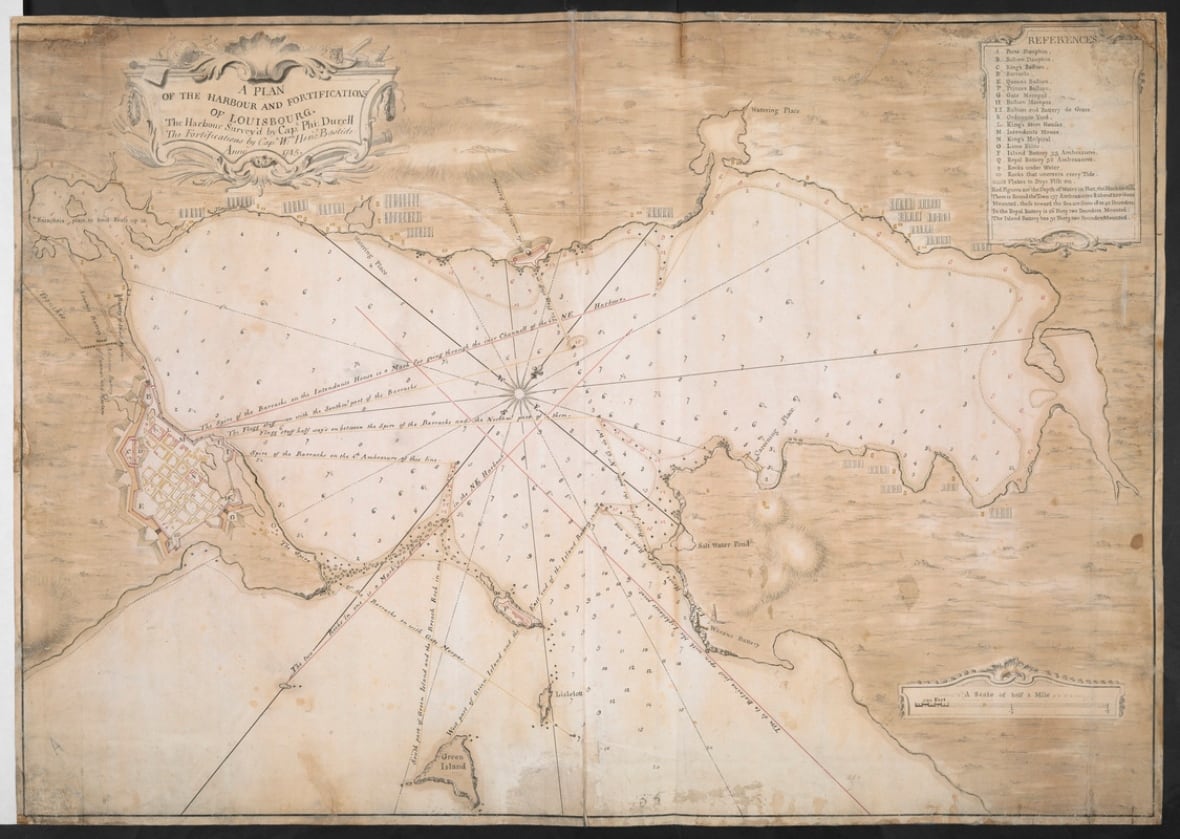Halifax researcher John Dickie’s fascination with the 1757 Fortress of Louisbourg hurricane began with a different research project — the underwater wreck of the HMS Tilbury.
The British warship met its end during the Seven Years’ War when Britain and France fought for colonial dominance in North America.
While examining ship logs and historical records, Dickie uncovered a larger story about a meteorological event that could have had far-reaching historical consequences.
He learned that the storm that sank the Tilbury affected many other ships at the time.
“We began to realize that the things that were being described … indicate a storm that was particularly strong and seemed to be stronger than anything we’ve seen in modern times,” he said.
Through scientific analysis of data from military ship logs, Dickie was able to extrapolate the storm’s intensity.
He noted the winds on Sept. 25, 1757, were powerful enough to snap masts and capsize several vessels.
Dickie’s research led him to place the storm in the Category 4 range, with peak winds exceeding 200 km/h.
The storm surge at Louisbourg, on the island’s eastern coast, was especially devastating, measuring about three times higher than what’s typical for such a hurricane.
The British fleet was severely damaged. Most ships lost their masts. The Tilbury and the Ferret were wrecked.
In 2024, Dickie published his findings in the European Geosciences Union journal Climate of the Past.
Rare storm
CBC meteorologist Ryan Snoddon said that a Category 4 hurricane that far north is extremely rare.
“We’re talking winds over 200 km/h,” he said.
“That puts it in the same league as Fiona, but with even more concentrated destruction.”
Snoddon said a collision of a tropical system with cold northern air supercharged the storm, creating an exceptionally destructive event.
It happened at a pivotal moment in history.
Fortress of Louisbourg historian Daniel Pitcher said the storm occurred while Britain was amassing its largest North American fleet, under the command of Vice-Admiral Francis Holburne, to attack Louisbourg.
The fortress was a key French port guarding the Saint Lawrence River and Quebec.

While the storm left the British fleet in tatters, the French fleet, which was safely in the harbour, was in much better shape.
It also caused considerable damage to the fortress itself, Pitcher said.
“Waves surged over the walls, flooding parts of the town,” he said. “Soldiers had to abandon their posts and certain areas of the fortress because water was up to their knees.”
According to Pitcher, the storm surge went as far as nine kilometres inland from the coast.
Missed opportunity
Dickie notes that French captains, under the command of Admiral Dubois de la Motte, petitioned him to press their advantage and capture the British fleet, but he declined.
Pitcher suggests that Dubois de la Motte’s decision may have been influenced by a combination of the weather and disease.
He said the French navy was affected by a typhus epidemic while sailing from France, with many sailors still recovering.
Dickie is fascinated by the cascading consequences this near-miss might have triggered.
He speculates that it could have led to a French capture of Halifax, no British attack on Quebec in 1759, France retaining New France, and the removal of the French motive for supporting the American Revolution.
“None of the other pieces would have existed to create the United States,” Dickie said.
He believes that Dubois de la Motte, who was in his 70s, was likely satisfied with simply achieving his orders to defend the fortress, not realizing what he had passed up.
He marvels at how this forgotten storm, followed by French inaction, might have prevented America’s existence.
“The world as we know it today could be very different. But we would remember this very famous storm that’s not remembered at all today.”






